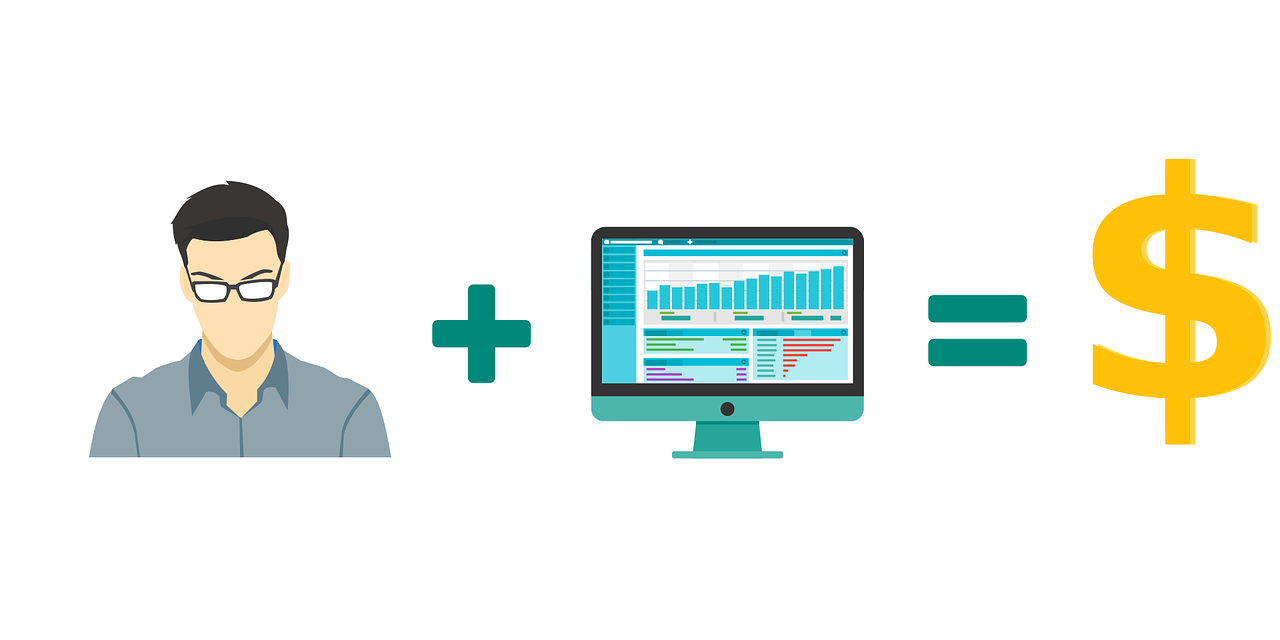How to Make Money on Your Website: Monetization Strategies
Today we talk about How To Make Money On Your Website, Having a website presents opportunities to generate income and monetize your online presence. Whether you run a blog, an e-commerce site, or a niche community, implementing effective monetization strategies can help you turn your website into a profitable venture. In this article, we will explore various methods to make money on your website and maximize its revenue potential.
Section 1: Website Revenue Generation
Exploring Website Monetization Strategies for Online Income 💰💻
Welcome to the world of website monetization, where your online presence can become a valuable source of income. Whether you’re a blogger, content creator, or online business owner, implementing effective monetization strategies can help you turn your website into a revenue-generating asset. In this section, we will explore a variety of techniques to maximize your website’s profitability and unlock the potential for online income. Let’s dive in and discover the possibilities! 💡🌐
1.1 Leveraging Website Advertising Networks One popular approach to website monetization is through advertising networks such as Taboola, Bidvertiser, and Google AdSense. These platforms allow you to display relevant ads on your website and earn revenue based on clicks or impressions. By strategically placing ad units and optimizing their performance, you can tap into the vast advertising ecosystem and generate income from your website’s traffic.
1.2 Embracing Affiliate Marketing Another powerful monetization strategy is affiliate marketing, where you promote products or services on your website and earn a commission for each successful referral or sale. By partnering with relevant affiliate programs and strategically integrating affiliate links into your content, you can monetize your website while providing value to your audience. Explore different affiliate networks and programs to find those that align with your niche and audience.
1.3 Exploring E-commerce Opportunities If you have products or services to offer, setting up an e-commerce store on your website can be a lucrative monetization avenue. By creating an online shop, you can directly sell your own products, merchandise, or digital goods to your audience. Utilize secure payment gateways and implement effective product showcasing and marketing strategies to attract customers and drive sales.
1.4 Generating Passive Income Streams Beyond advertising, affiliate marketing, and e-commerce, consider other passive income streams to diversify your website’s revenue sources. This may include sponsored content collaborations, membership subscriptions, sponsored reviews, or even creating and selling digital products such as e-books, courses, or templates. By leveraging your expertise and providing valuable resources, you can create ongoing streams of income while expanding your website’s offerings.
1.5 Optimizing User Experience and Conversion Rates While implementing monetization strategies, it’s crucial to prioritize the user experience and optimize your website for conversion. Ensure your website is visually appealing, easy to navigate, and loads quickly. Implement call-to-action buttons, lead capture forms, and effective sales funnels to maximize conversion rates and encourage visitor engagement.
With the right blend of website advertising, affiliate marketing, e-commerce, and passive income strategies, you can transform your website into a thriving online business that generates sustainable income. Explore these website monetization strategies, experiment with different approaches, and find the perfect mix that aligns with your website’s goals and audience. Get ready to unlock the full potential of your website and monetize your online presence for financial success! 💪💻💸
2. Affiliate Marketing
Affiliate marketing involves promoting products or services and earning a commission for each sale or referral generated through your website. Consider the following steps:
- Choose Relevant Affiliate Programs: Join reputable affiliate networks like Amazon Associates, ShareASale, or Commission Junction. Select products or services that align with your website’s niche and target audience.
- Promote Affiliate Links: Incorporate affiliate links within your content, product reviews, or recommendations. Use compelling call-to-action buttons and disclose affiliate partnerships.
- Track Performance: Monitor the performance of your affiliate campaigns to identify successful strategies and optimize your earnings.
3. Sell Digital Products or Services

Leverage your expertise and create digital products or services to sell on your website. Consider the following options:
- E-books or Courses: Write and sell e-books or online courses on topics that resonate with your audience. Package your knowledge and provide value through comprehensive guides or educational material.
- Membership or Subscription Services: Offer premium content, exclusive resources, or a community platform through a membership or subscription model. Provide incentives for members to join and continue their subscription.
- Consulting or Freelancing: Utilize your website as a platform to advertise and offer consulting services or freelance work. Showcase your expertise and provide clear information on the services you offer.
4. Sponsored Content and Partnerships
Collaborating with brands, businesses, or other content creators can provide additional revenue streams. Consider the following approaches:
- Sponsored Reviews or Features: Partner with brands to create sponsored content, such as product reviews, features, or sponsored posts. Ensure transparency by clearly disclosing any sponsored content.
- Brand Partnerships: Collaborate with relevant brands for long-term partnerships. This may involve brand ambassadorships, sponsored events, or joint marketing campaigns.
5. E-commerce and Selling Physical Products

If you have physical products to sell, consider setting up an e-commerce store on your website. Focus on:
- Product Selection: Offer products that align with your website’s niche and cater to your target audience’s needs or interests.
- User-Friendly Shopping Experience: Create an intuitive and secure online store with easy navigation, clear product descriptions, and smooth checkout processes.
- Payment Gateways: Integrate trusted payment gateways to provide a variety of payment options for customers.
How to Choose the Right Monetization Strategy for Your Website
The best monetization strategy for your website will depend on a number of factors, including your niche, audience, and goals. Here are a few things to keep in mind when choosing a monetization strategy:
- Your niche: What are you passionate about? What do you know a lot about? If you can choose a monetization strategy that aligns with your niche, you’ll be more likely to be successful.
- Your audience: Who are you trying to reach? What are their needs and interests? Once you know your audience, you can choose a monetization strategy that will appeal to them.
- Your goals: What do you want to achieve with your website? Do you want to make money? Build a community? Promote your business? Once you know your goals, you can choose a monetization strategy that will help you achieve them.
Conclusion
Monetizing your website requires a combination of strategies tailored to your niche, audience, and goals. Experiment with different methods, track performance, and adapt your approach based on user feedback and market trends. By implementing effective monetization strategies, you can turn your website into a profitable venture and capitalize on its potential for generating income.
Here are some alternative keywords that you can use:
website revenue generation, website profit strategies, online monetization techniques, website income generation, website income streams, passive income from websites, website ad networks, website advertising revenue, affiliate marketing on websites, e-commerce on websites, website monetization alternatives.







